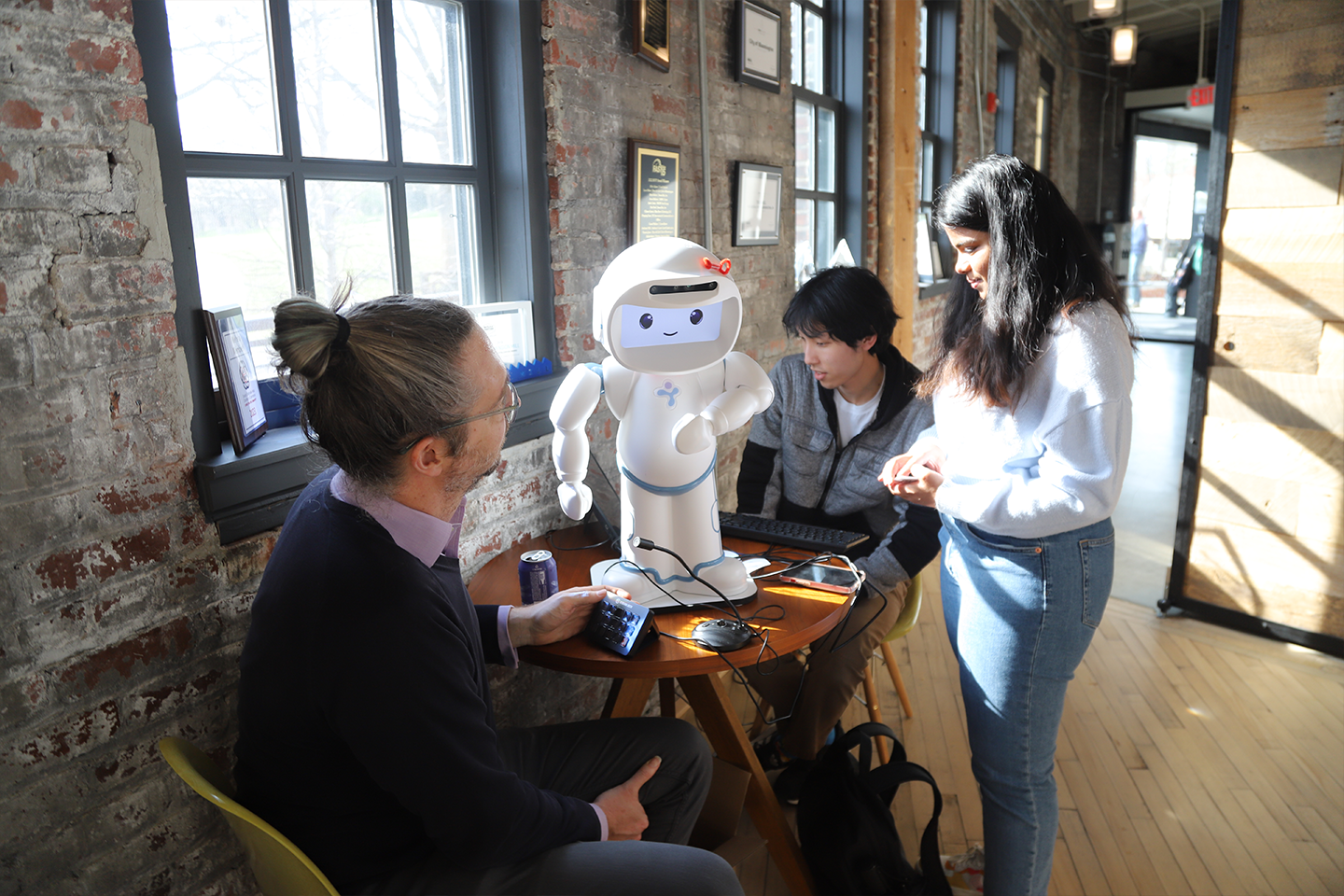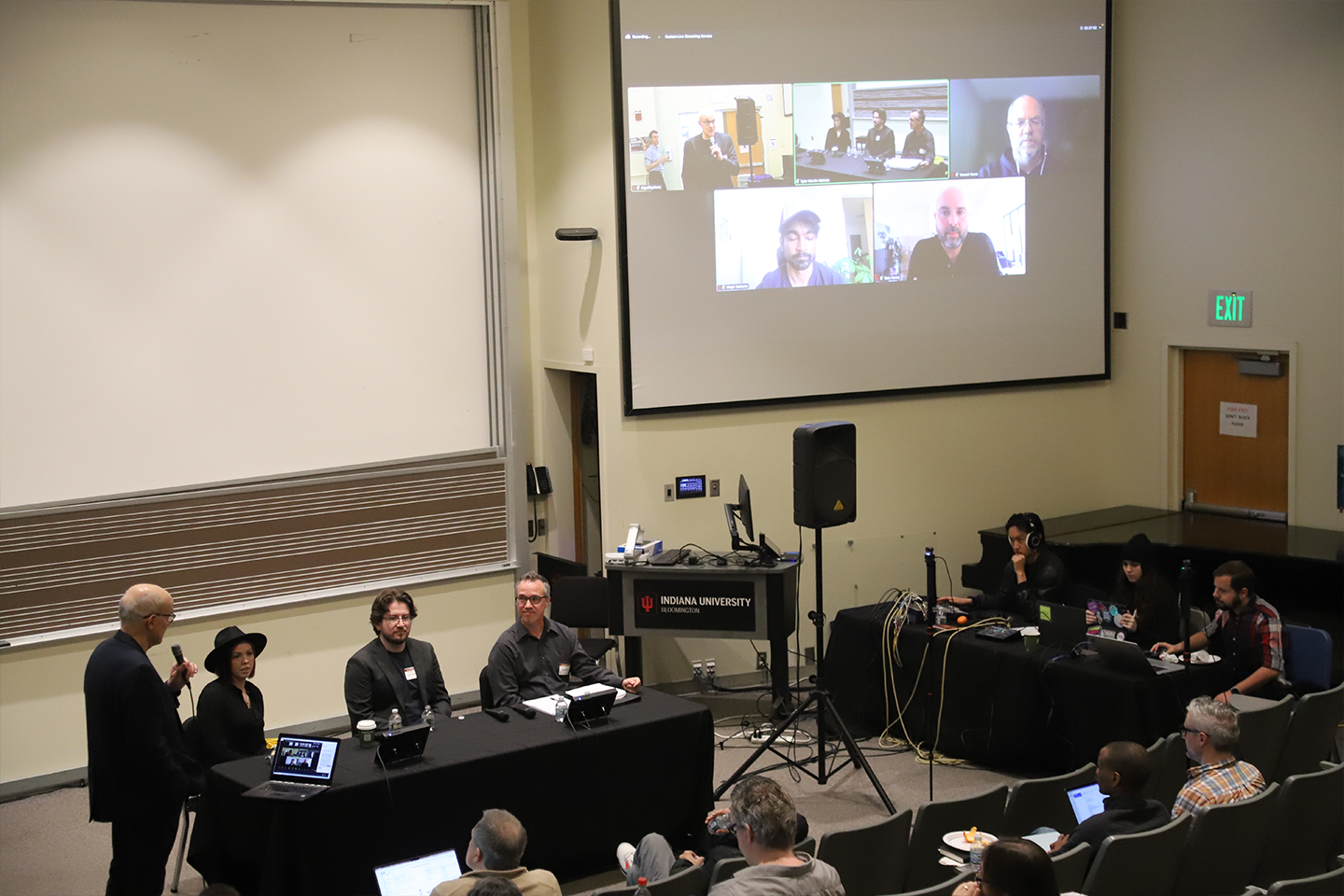As we prepare for this year’s AlgoRhythms: The World of Music and AI, March 28–29, we would like to share this story about last year’s successful event. Written by Sarah McDonie for our 2024 Resonance publication, we hope it will whet your appetite for 2025’s gathering!
Joanna Woronkowicz, associate professor in the O’Neill School of Public and Environmental Affairs, began her presentation on creativity and AI by outlining three effects AI has on audiences. When Woronkowicz finished her introduction, she paused unexpectedly and sighed. “I feel like this is really boring.” The audience politely chuckled. But then this question filled the presentation screen: “Do you think this was a real presentation?” The silence seemed to ask, “Well?” Then the next slide: “Nope. It’s not. It was created by AI.” Amid the ensuing laughter and applause, there was a palpable unspoken appreciation of a point well made.
This was but one of many engaging presentations at AlgoRhythms: The World of Music and AI, a pop-up summit cohosted by the Jacobs School of Music and Rock Paper Scissors, a Bloomington-based music-tech PR and marketing firm, in March 2024. While humorous, Woronkowicz’s opening gambit reveals a central debate around AI and music: What does the future of human creativity hold now that we have AI?
Alain Barker, director of Jacobs’ Office of Entrepreneurship and Career Development, took a big step toward answering this question by leading the planning for AlgoRhythms. He aimed to create a space for Jacobs students and faculty to explore ways of engaging and navigating new AI technologies in their creative work. “AI is disrupting and changing just about everything that we do in the world of music, especially when it comes to producing music,” he says. “My sense is that students are incredibly excited about it.”
The summit featured a hybrid format with a mix of virtual and in-person events centered around four panel discussions: Copyright Law in the Age of AI, AI Tools that Empower Artists, Startups in Music and AI, and Emerging Creativity in AI. Music-tech industry leaders led these conversations alongside IU faculty, representing diverse fields such as computer science, audio coding, visual art, instrumental performance, and software development.
AlgoRhythms was so successful that Barker is already at work putting together another summit for the spring of 2025. His goal is to create “a community around music and tech” that does not valorize the glittering promises of high technology but instead digs into its many creative possibilities and challenges with a critical eye and a generous spirit.







